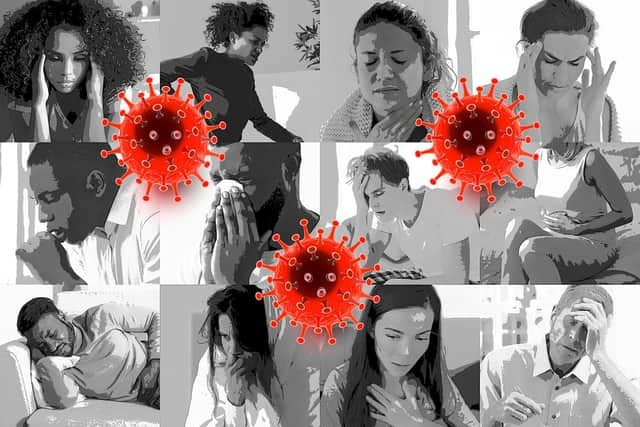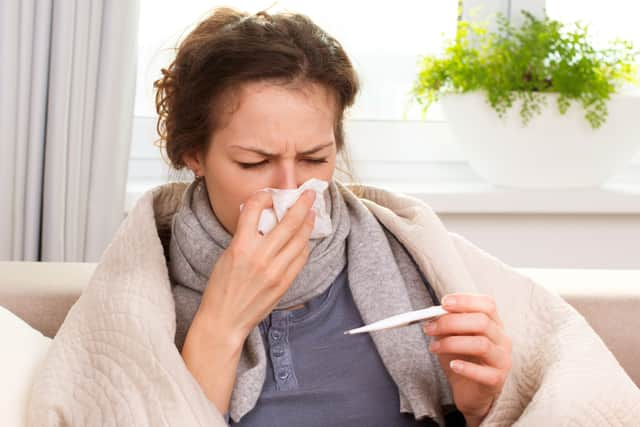New Covid symptoms: what are the nine latest signs of coronavirus illness on NHS list - including sore throat
and live on Freeview channel 276
Nine new Covid symptoms have been added to the official NHS list more than two years into the pandemic.
The list is believed to have been quietly updated on Friday (1 April) afternoon, extending the list from just three symptoms to 12 in total.
Advertisement
Hide AdAdvertisement
Hide AdPreviously, only three official symptoms were listed with people warned a high temperature, a new continuous cough, or a loss or change to sense of smell or taste were the key signs of infection to look for.


What symptoms have been added?
The list of three key coronavirus symptoms has remained in place for more than two years.
However, as more Covid variants have emerged over the course of the pandemic, the symptoms being reported has become more varied.
The new list reflects the wider range of symptoms that could indicate possible infection from coronavirus.
The full list of symptoms now includes:
- a high temperature or shivering (chills) – a high temperature means you feel hot to touch on your chest or back (you do not need to measure your temperature)
- a new, continuous cough – this means coughing a lot for more than an hour, or 3 or more coughing episodes in 24 hours
- a loss or change to your sense of smell or taste
- shortness of breath
- feeling tired or exhausted
- an aching body
- a headache
- a sore throat
- a blocked or runny nose
- loss of appetite
- diarrhoea
- feeling sick or being sick


Advertisement
Hide AdAdvertisement
Hide AdThe new list expands on previous warnings from health experts after people had been reporting a wider array of symptoms for months as new variants emerged.
The Omicron variant in particular has been found to cause symptoms that are very similar to the common cold or flu, with a runny nose, headache and sore throat being among the key signs of infection.
Tim Spector, Professor of Genetic Epidemiology at King’s College London and leader of the ZOE Covid study, previously said: “A lot of the Omicron symptoms, the majority of them are looking like the common cold or some other viral illness, without any of the classic symptoms.
“So do be aware of the main ones which we’ll keep you updated on. Unfortunately the government hasn’t yet taken this on board and are one of the only government’s in the world not to tell its citizens what the symptoms are.
Advertisement
Hide AdAdvertisement
Hide Ad“But they are runny nose, headache, sneezing, persistent cough and sore throat.”
After adding to the list of symptoms, the NHS website highlights: “The symptoms are very similar to symptoms of other illnesses, such as colds and flu.”
What should I do if I have symptoms?
It is advised that you stay at home and avoid contact with other people if you have Covid symptoms, as well as a high temperature or if you do not feel well enough to go to work to do your normal activities.
If you live in England or Northern Ireland you are not legally required to self-isolate if you test positive for Covid, but government guidance still recommends that you stay at home for at least five days.
Advertisement
Hide AdAdvertisement
Hide AdPeople who test positive for Covid in Scotland should self-isolate for 10 days, but can stop on the seventh day providing they record two negative lateral flow tests consecutively.
In Wales, the requirement to self-isolate after a positive test ceased being law on 28 March, but government guidance still recommends staying at home for five full days.
Comment Guidelines
National World encourages reader discussion on our stories. User feedback, insights and back-and-forth exchanges add a rich layer of context to reporting. Please review our Community Guidelines before commenting.
